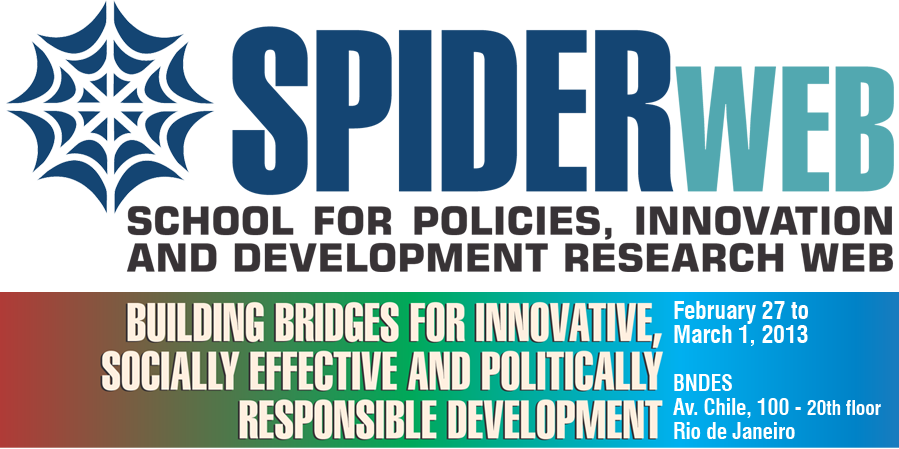Day 3 – March 1
9h30 – 12h30 – Session 6
Building a School for Advanced Studies Which Can Deliver Policy Impact
Chair: Jorge Guimarães (CAPES President, Brazil) *
Round Table
Jan Kregel (Levy Institute) *
Jorge Ávila (Brazilian Patent Office President, Brazil) *
Leonardo Burlamaqui (Ford Foundation) *
Manuel Montes (South Centre, Geneve) *
Marco Aurelio Crocco Afonso *
Prabhat Patnaik (Jawaharlal Nehu University) *
Rogério Studart (World Bank) *
General Discussion
14h00 – 19h00 – Session 7
Power Relations, Institutional Constraints, Regional Integration and Development
China’s development model, with its singular modalities ofdecision making, long term planning, investment and financing opened new perspectives on how we conceive growth and industrial competitiveness and called for a reflection on Brazil’s international insertion in the global economy, as well and its regional and international production relations.
The Chinese economy proved resilient in the financial crisis but internal imbalances, growing inequality and loopholes in the institutional framework guiding economic relations brought about by 30 years of consistent expansion were also made more evident. The current 12 year Plan proposes an important reorientation of the economy in an international context of slow growth, increasing real and potential conflict in China-US relations with implications for regional economic relations in the Pacific. There is a growing consensus amongst economic and governmental circles in China that the reform era inaugurated by Deng Xiao Ping is closing and that the new circumstances of the global economy will require a rethinking of economic opportunities for short and long term growth with new institutional arrangements and priorities in the areas of technological innovation, knowledge governance and inter-regional economic relations.
The moment is opportune to consider how emerging economies such as Brazil should structure its long term growth prospects. It seems urgent to evaluate the options of an international economic and political order that combines multipolarity and increased competition.
Chair: Anna Jaguaribe (PPED, IBRACH) * ![]()
14h00 – 14h50 – Introducing themes and proposals for the debate
Barry Naughton (University of California, USA) *
Clodoaldo Hugueney (former Brazilian Ambassador in China, Brazil) *14h50 – 15h50 – Comments:
Albert Keidel (University of Georgetown, USA) *
Adriano Proença (COPPE, UFRJ, Brazil) *
Mariano Laplane (CGEE, Brazil) *
15h50 – 16h05 – Coffee break
16h05 – 18h30 – Round Table
Chair: Renato Baumann (IPEA) *
Affonso Ouro Preto *
Andreas Nölke *
David Kupfer *
Ernani Torres *
Francisco Sagasti *
Prabhat Patnaik *
Lionello Punzo *
Luiz Cláudio Dias Reis *
Moira Paz Estenssoro *
Paulo Furquim de Azevedo *
Ricardo Bielschowsky *
Sandro Cabral *
Valéria Delgado Bastos *
(* Confirmed)






